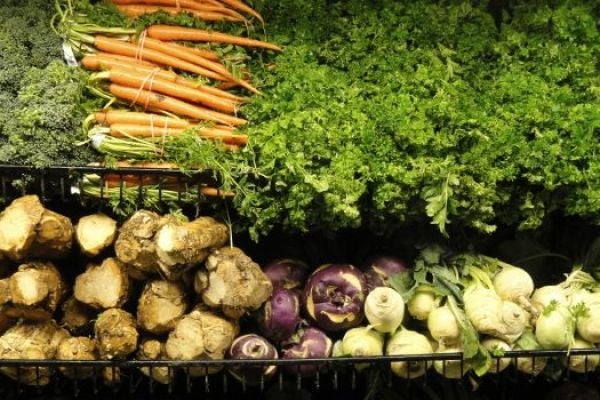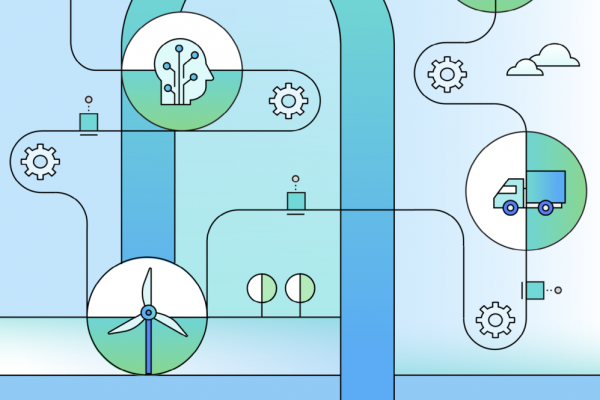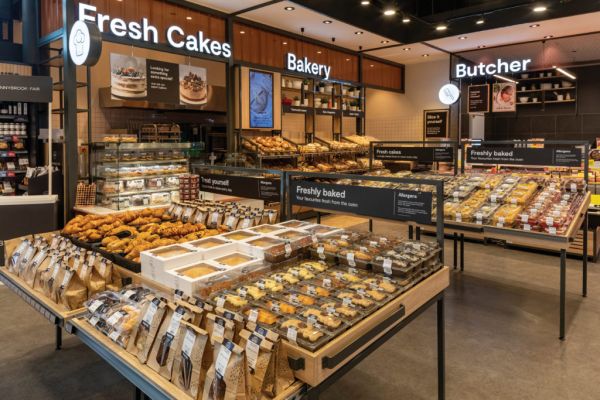In today’s economy, grocery prices are still climbing due to inflation, worker shortages, high packaging and transportation costs and other supply chain challenges.
Let's explore three critical ways grocery retail professionals can adapt to these ongoing challenges and keep their shelves stocked with healthy, affordable products.
1. Increase Transparency Along The Grocery Supply Chain
High-volume grocery supply chains are prone to many logistical errors, especially when the products travel overseas. Having complete transparency of all food products is crucial for maintaining their quality. Supply chain software with built-in artificial intelligence and Internet of Things can be instrumental in helping grocers adapt to their supply chain challenges.
Fortunately, it’s never been easier to obtain analytics-driven insights about your supply chain’s strengths and weaknesses. Supply chain software can identify specific chainlinks that are costing you time and money. More informed decision-making leads to faster deliveries, stocked shelves and happy customers.
This new tracking software can send status alerts across the world in real time to notify you of any damage or delivery delays. You can identify these problems as they happen, rather than days or weeks later, and adjust your inventory accordingly. Quickly identifying small issues prevents them from snowballing into bigger problems farther down the chain.
Consumer attitudes are also rapidly changing. Many shoppers today want specific details about the production, packaging and distribution of their food products. They are more likely to buy frozen or shelf-stable foods to cut back on waste and make their grocery haul last longer.
This information helps consumers buy from brands that align with their values, especially pertaining to the environment. Some food manufacturers have engaged in greenwashing in misleading attempts to take advantage of new consumer priorities. Dishonest business practices only make supply chain troubles worse by creating distrust between the parties involved.
Geopolitical interference also makes grocery supply chain visibility more important. Companies worldwide continue to cut off Chinese trade due to its unreliability as a trading partner. Retailers need to know exactly where their food comes from to avoid creating more unrest. Our supply chains are already fragile enough.
2. Embrace E-Grocery Stores
One of the hottest topics in the fast moving consumer goods (FMCG) environment is e-commerce or e-grocery stores. The number of Americans who buy their groceries online is expected to exceed 163 million by 2024. Online shopping as a whole has exploded in popularity since the COVID-19 pandemic.
Online grocery shopping is here to stay, and it has proven to bring many benefits for both retailers and consumers. It enables grocery stores to retain engagement and customer loyalty, as well as expand their target market to a wider geographical area.
Most importantly, e-grocery stores offer flexibility in an otherwise inflexible economy. Since many grocery products are unaffordable or unavailable for the average consumer, you need to provide more options. You can easily recommend alternative products and different payment methods online. In this way, you keep customers happy and gain more insights about their shopping habits.
An e-grocery option also enables you to adapt to emerging trends and technologies surrounding FMCG product distribution. Multi-channel order fulfilment is the latest trend that consumers have prioritised. They want their shopping experience to adapt to their demands and expectations. You can’t change a grocery store overnight, but you can change a website.
3. Hold Food Manufacturers To Higher Standards
Those within the food industry know full well that collective responsibility is a crucial part of keeping grocery stores stocked. Problems with one vendor on the grocery supply chain affect everyone, down to the consumer. That’s why high standards are so important in the world of FMCGs.
During the early months of COVID-19, most people were more preoccupied with keeping their families safe than doing their jobs. Grocery store retailers were no exception. As a result, supply chain standards declined and remain in a state of recovery. This is one of the factors contributing to grocery supply chain issues that tends to get overlooked.
It’s time for retailers, vendors and consumers to hold food manufacturers to higher standards again. The aforementioned supply chain software will play a huge role in raising industry standards, but this crucial adaptation must primarily take place on a human level.
Food waste, high emissions, delivery delays and shortages of essential goods like grain and cooking oil need to be addressed. The first step in addressing all of these issues is to hold manufacturers accountable. Increasing visibility will help you and other grocery retailers weed out wasteful food packaging and shipping practices.
Adaptation is a Human Instinct
It’s easy to get caught up in the logistical and analytical side of things, especially in the fast-paced FMCG industry. Adapting to the grocery supply chain’s challenges will require some analytical thinking, but it’s ultimately a human instinct. You must use that instinct to find new strategies and technologies to restabilise the market.
Recovery won’t happen overnight, but every adjustment makes a difference. These three adaptations are great places to start.
© 2023 European Supermarket Magazine – your source for the latest supply chain news. Article by Emily Newton, Revolutionized. Click subscribe to sign up to ESM: European Supermarket Magazine.














